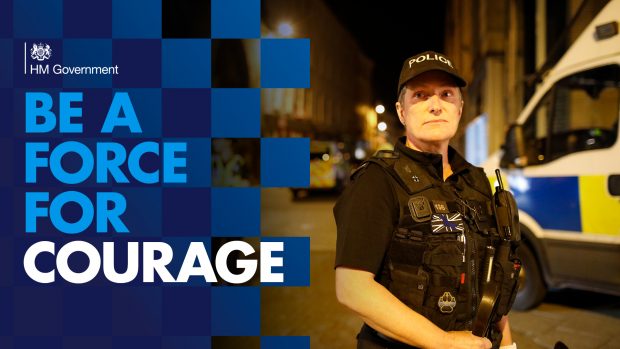
Today the Prime Minister and the Home Secretary have launched a national campaign to recruit 20,000 new police officers.
The below factsheet details some of the key points of this announcement.
Recruitment
- We are committed to recruiting 20,000 new police officers – the biggest police recruitment drive in decades
- Up to 6,000 officers will be recruited by the end of 2020-21 and all of them will be shared between the 43 territorial police forces in England and Wales
- The remainder of officers will be recruited in 2021-22 and 2022-23
- The 20,000 new officers will be in addition to those recruited to replace officers leaving the force
- We are working with the National Police Chiefs’ Council (NPCC), the College of Policing and other policing partners to ensure forces are fully prepared for the new recruits and ready to deliver this increase at pace
- A National Policing Board has been established, bringing together key police leaders to help ensure the delivery of agreed outcomes and crack down on crime
Be a force for all campaign
- The Be a force for all campaign has been developed by the Home Office in close collaboration with NPCC and College of Policing and using feedback from the public via independent research
- A dedicated website www.joiningthepolice.co.uk has been set up with details about the recruitment drive, the different routes into policing and the live vacancies that exist across the country
- Serving police officers feature in the campaign across digital display, billboard and radio advertising and social media content
- The campaign is aimed at anyone who is interested in joining the police and also those who have not previously considered a career in this field
- It shows there is not one set of characteristics or one specific background required to be a police officer and demonstrates the values of the police and the difference officers make
How will the new officers be allocated and deployed?
- The Prime Minister has committed to recruiting an additional 20,000 police officers over the next three years
- The new programme will deliver 20,000 completely new posts across policing in addition to replacing leavers. This is not a backfilling exercise; there will be new officers keeping our communities safe
- Up to 6,000 additional officers will be recruited by the end of 2020-21 and all of these 6,000 will be shared between the 43 territorial police forces in England and Wales
- The deployment of this first wave of officers will be an operational decision for Police & Crime Commissioners and Chief Constables
- We will confirm allocations as soon as possible
How will the new officers be funded?
- The Government has committed to meeting the funding requirements for 20,000 additional officers over the next three years
- The Chancellor has announced funding to support the recruitment of up to 6,000 additional officers by the end of 2020-21
- This includes £750 million for 2020-21 and an immediate £45 million in 2019/20 to kick-start recruitment
Do people need a degree to be a police officer?
- No. There are numerous entry routes into policing.
- The Be a force for all campaign is aimed at non-graduates, graduates, career changers, former officers and police volunteers and staff.
Traditional route
- Some forces have a traditional initial training programme for police constables for anyone with A-levels or equivalent
New routes
- Since 2018, a new training curriculum became available and includes cyber-enabled crime, vulnerability and risk, well-being and resilience, criminology and crime prevention, and separate modules on leadership and teamworking. It is available on the following routes:
-
- Apprenticeship - recruits can as police constable apprentices with A-levels or equivalent. This route allows people to earn while they learn. It takes three years and individuals finish with a degree.
- Degree holder – graduates can join on a two-year work-based programme
- Pre-degree joiner – you can study first, undertaking a three-year professional policing degree before joining the police and completing shorter, on the job training
-
How much do new recruits get paid?
- Chief officers have discretion to appoint new officers on a salary range between £18,450 and £24,177 depending on entry route, qualifications and experience
How to join?
- You can find out more information about the police and be directed to the recruitment pages of 43 police forces at www.joiningthepolice.co.uk
